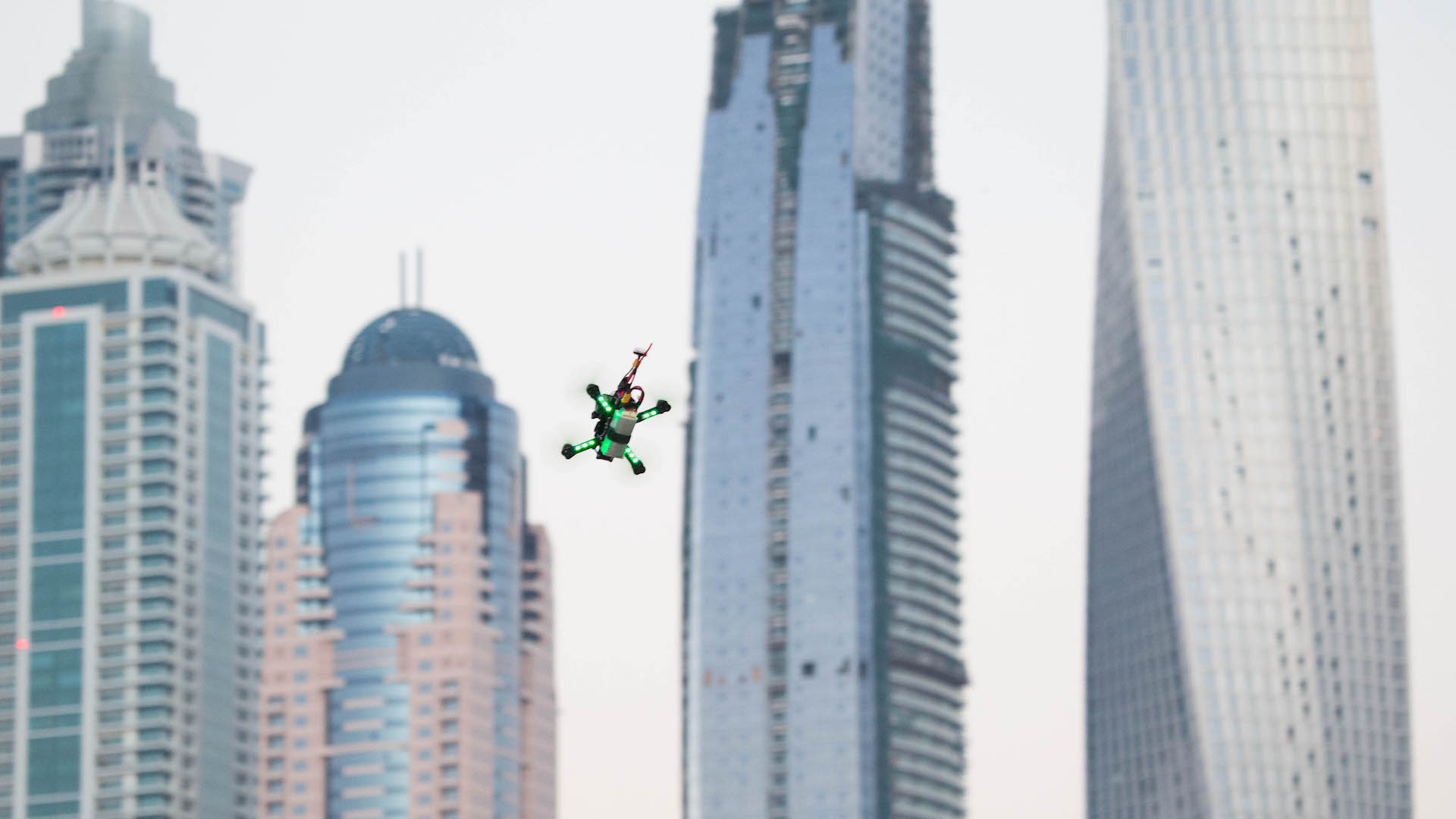

The Dubai Civil Aviation Authority (DCAA) just implemented the Skytrax anti-drone system to monitor registered drones and prevent them from causing cost-heavy airport shutdowns at Dubai International, according to a CNN report.
While Dubai is certainly home to quite a few domestic drone endeavors, ranging from Volocopter’s ability to test its passenger drones to aerial delivery reportedly arriving before the year is up, protecting Dubai International from unnecessary drone interruptions is crucial. The airport saw a staggering 87 million passengers passing through it in 2017.
With airport shutdowns costing as much as $1 million per minute according to CNN, and three drone-related shutdowns at Dubai International in 2016 (with one of those lasting 90 minutes), you can see why the DCAA is so eager to ramp up preventative measures.
The Skytrax system, unfortunately, has to first stick two-ounce trackers to every registered drone in the city before being able to functionally track those UAVs and effectively keep them out of Dubai International airspace. It was developed alongside drone company Exponent Technology Services, with its chief executive Asam Khan claiming no other city has worked as hard to monitor and prevent rogue drone activity.
The DCAA will be monitoring drones in real-time, 24 hours a day. Should a UAV encroach upon no-fly zones and enter illegal airspace, Skytrax sends text alerts to the DCAA, who can them warn drone pilots to reconsider—or else. As it stands, UAVs are prohibited from entering within 16,400 horizontal feet or 3,000 vertical feet of commercial air traffic.
For Mike Rudolph, head of airspace safety at the DCAA, while it’s “relatively rare” that rogue drones encroach upon commercial air traffic, the Skytrax system does work as a thorough deterrent for anyone considering to do so. “We’ve had no incidents from the time that we’ve implemented the system,” he said.
“Drone operators such as ourselves, we have to realize use of the national airspace [is] not a fundamental human right,” said Khan. “You share it with other users, so you have to use it responsibly.”